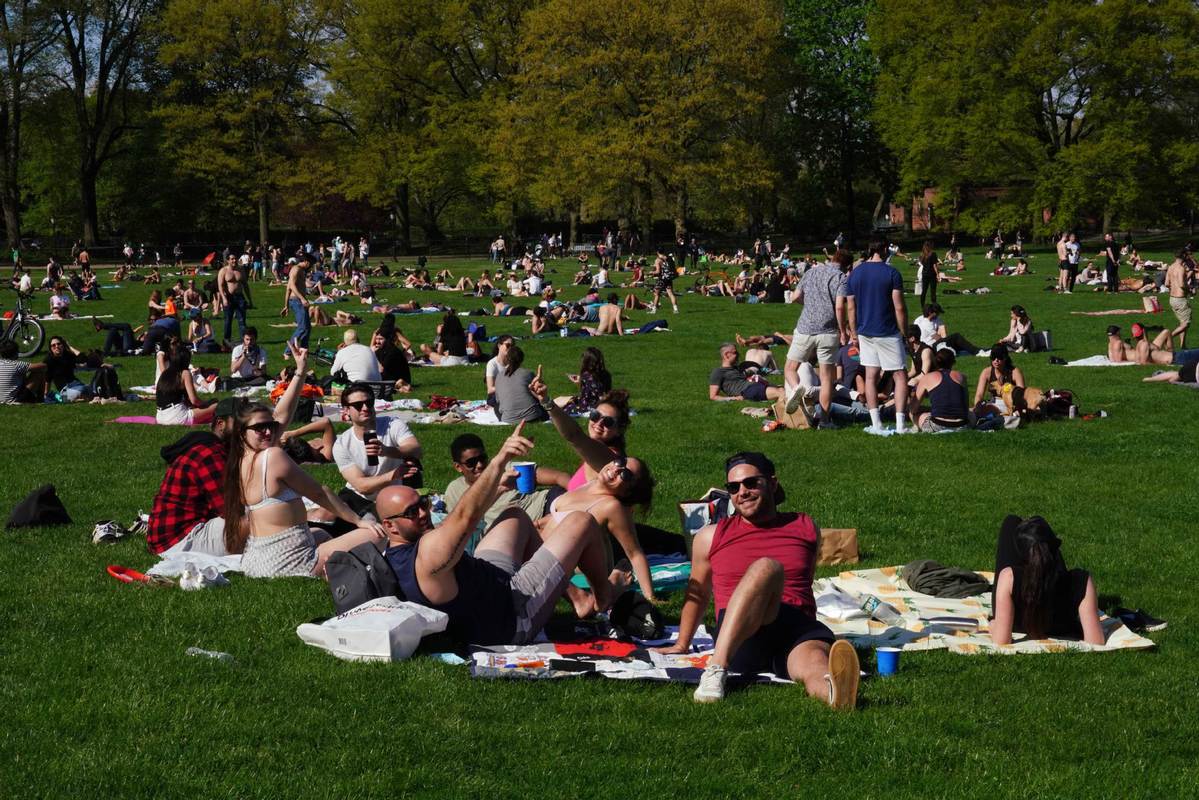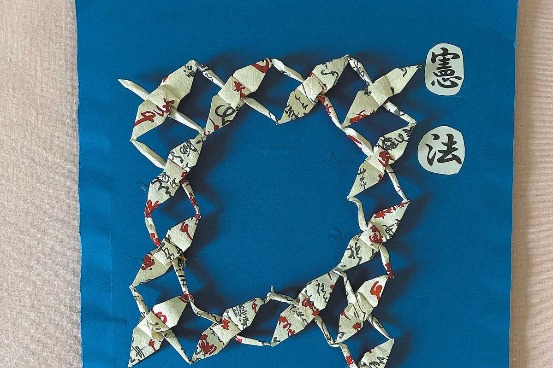States ease restrictions amid virus concerns


People across the United States went to beaches, golf courses, parks and lakes over the weekend — or got haircuts and even tattoos — as many states eased stay-at-home rules put in place to stop the spread of the novel coronavirus, but health experts expressed concern that it all may be too much too soon.
Former Food and Drug Administration commissioner Scott Gottlieb warned Sunday that if states allow schools, workplaces and other public areas to "let their guard down", an explosion of new coronavirus infections could bubble up into a "new epidemic" or "large outbreak".
"The concerning thing here is that we're looking at the prospect that this may be a persistent spread," Gottlieb said on CBS' Face the Nation.
Gottlieb said that new cases are still happening in about 20 states, including Illinois, Texas, Maryland, Virginia, North Carolina and Tennessee, among others.
Dr Tom Inglesby, director of the Center for Health Security at the Johns Hopkins Bloomberg School of Public Health, said that if restrictions are lifted too soon, the virus could come back in "small waves in various places around the country".
"Nothing has changed in the underlying dynamics of this virus," he said Sunday on NBC's Meet the Press.
On Friday, more than 30 states started easing social distancing restrictions. Some opened all outdoor activities while others allowed a limited variety of businesses to restart.
"You're making a big mistake. It's going to cost lives," Dr Irwin Redlener, a pediatrician and disaster preparedness specialist at Columbia University Medical Center, told CNN on Friday.
Redlener and Joseph Fair, a senior fellow in pandemic policy at Texas A&M, sent a report to all governors Friday warning them that no state or city should reduce restrictions until coronavirus infections have been steadily decreasing for 10 days to two weeks, and not until enough tests are available to assess just how many people really are infected.
On Sunday, White House Coronavirus Task Force coordinator Dr Deborah Birx criticized protests by maskless crowds demanding an end to stay-at-home orders.
"It's devastatingly worrisome to me personally, because if they go home and infect their grandmother or their grandfather ... they will feel guilty for the rest of our lives," she said on Fox News. "So we need to protect each other at the same time we're voicing our discontent."
Also on Sunday, Michigan Governor Gretchen Whitmer said protests inside the state capitol building Thursday, featuring demonstrators with assault weapons, swastikas and Confederate flags, depicted some of the "worst racism and awful parts" of the nation's history.
"The Confederate flags and nooses, the swastikas, the behavior that you've seen in all of the clips is not representative of who we are in Michigan," she said.
Photos from the protest showed hundreds of participants crammed inside the building, many of whom were not wearing masks and flouted federal social distancing guidelines.
President Donald Trump tweeted in support of the protesters Friday morning, saying, "The Governor of Michigan should give a little, and put out the fire. These are very good people, but they are angry. They want their lives back again, safely! See them, talk to them, make a deal."
Whitmer responded: "We have to listen not to pollsters and not just people with political agendas but to epidemiologists. We're making decisions based on science, not on a tweet."
Remdesivir, the first possible scientifically proven treatment for battling COVID-19, will become available to US hospitals this week.
Daniel O'Day, CEO of Gilead Sciences, the biotech company that makes the drug, said on Face the Nation on Sunday that the company had donated 1.5 million vials to the US government, enough to treat 150,000 to 200,000 patients.
































